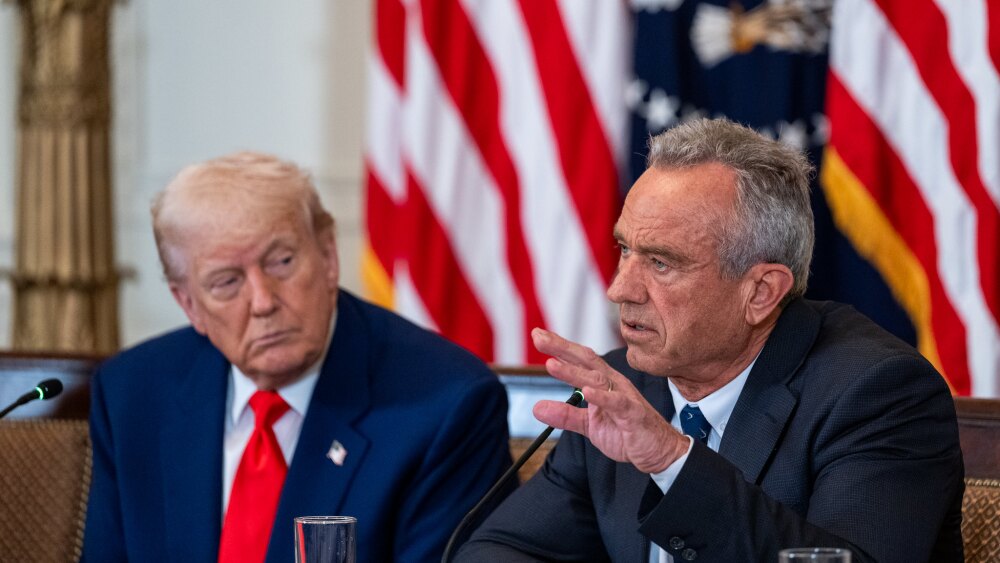The Department of Health and Human Services’ mRNA pullback only applies to their use in upper respiratory disease, according to Secretary Robert F. Kennedy Jr.
Health Secretary Robert F. Kennedy Jr. appears to support mRNA vaccine technology in some cases like cancer vaccines but not others, despite just last week pulling $500 million in funding from mRNA vaccine research.
In a Wednesday interview with Scripps News, Kennedy noted that HHS’ mRNA pullback is “only for upper respiratory” diseases. “We’re still doing the research on oncology,” where mRNA vaccines “may be very effective,” he said.
In an Aug. 5 news release, HHS terminated 22 mRNA-based contracts under the Biomedical Advanced Research and Development Authority (BARDA). The agency is scrapping these projects “because the data show these vaccines fail to protect effectively against upper respiratory infections” such as COVID-19 and the flu, Kennedy said at the time. The agency instead will focus on platforms with “stronger safety records,” according to HHS’ announcement.
The secretary doubled down on this critique during his Scripps interview, claiming that mRNA vaccines “did not prove very effective during COVID” in part because they are made against “a single protein.” Once the virus mutates out of that protein, Kennedy claimed, it becomes “immune to the vaccine.” COVID-19 vaccines based on mRNA are estimated to have saved between 3 million and 14 million lives, and are updated seasonally as viruses mutate.
Kennedy also claimed that with mRNA vaccines, “you can’t control the amount of antigen that everybody is getting,” which in turn could lead to unwanted side effects, without offering evidence to support that statement.
“What the mRNA vaccine does is it turns your body into an antigen factory and we can’t control the biodistribution of the antigen in your body,” Kennedy said.
Kennedy’s termination of the mRNA BARDA contracts has been met with strong pushback from the scientific community. “This may be the most dangerous public health judgment that I’ve seen in my 50 years in this business,” Michael Osterholm, epidemiologist at the University of Minnesota, told NPR.
There are also concerns about how the grants’ cancelation will challenge mRNA research across the board, including in oncology. In an opinion piece for BioSpace, Jonathan Kagan, Professor of Pediatrics at Harvard Medical School, argued that mRNA presents a novel and promising approach to cancer, and that sowing distrust against and skepticism of the technology could imperil progress made in this field.
Kagan said that scrapping the BARDA awards was a “short-sighted” move that “will not improve public health,” but instead “derail some of the most promising medical advancements of our time.”
On the question of safety, a June 2022 study from the CDC showed that most of the toxicities linked to the COVID-19 mRNA vaccines were mild in severity and resolved after some time. Myocarditis, the inflammation of heart muscles, is a known side effect of these shots, but the incidence rate is low at 1.7 to 2 cases per 100,000 inoculated people.






